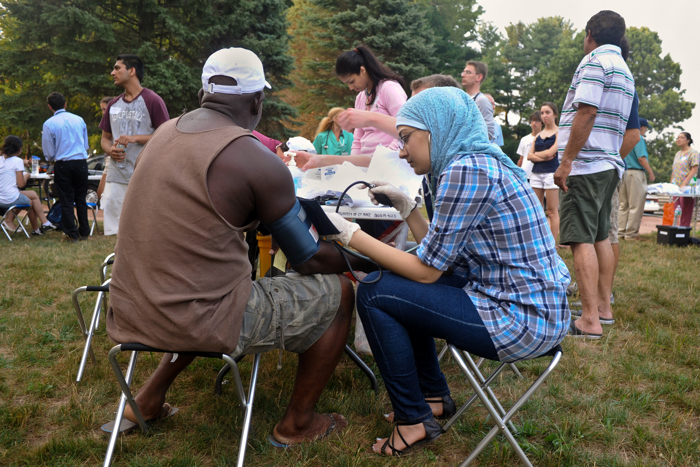
The UConn Health Center held its annual Migrant Farm Workers Symposium last week with more than 130 attending. The symposium provides valuable information about the migrant farm worker program to educators, health professionals, students and community partners and has been held every year since 1998.
The daylong event covered a variety of issues including:
- History of migrant farm workers in Connecticut
- History of UConn dental and medical clinics serving migrant workers
- Common diagnoses for migrant farm workers
- Impact of occupational and pesticide health issues
- Past and current research projects
- Federal voucher program for migrant and seasonal workers

For the first time, the symposium offered a three-hour medical and dental interpreter workshop for the volunteers.
Maritza Rosado, director of multicultural service learning for the Area Health Education Centers (AHEC), says the program provides interpreters for every farm site and the volunteers work at multiple sites throughout the summer.
“The interpreters provide valuable communication assistance and help reduce the language barriers that often exist within the farms,” says Rosado. “The interpreters help the workers feel more comfortable and not as intimidated about the health care process and in the long run, that helps improve health outcomes for this population.”
More than 20 volunteers, who were required to pass a proficiency test, attended the workshop.

Follow the UConn Health Center on Facebook, Twitter and YouTube.



